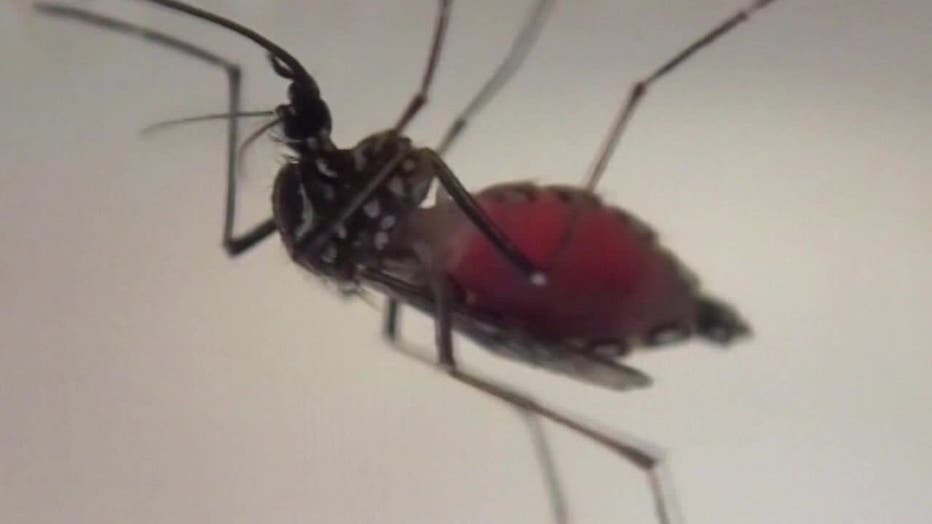West Nile virus: Milwaukee Health Department reports human cases

Milwaukee Health Department
MILWAUKEE - The Milwaukee Health Department on Thursday advised residents to take steps to prevent mosquito bites after two human cases of West Nile virus were reported in the city.
Several other cases have been reported in Wisconsin this year. The virus has also been detected in animals, mosquitoes and screened blood donors.
SIGN UP TODAY: Get daily headlines, breaking news emails from FOX6 News
West Nile virus transmission
West Nile virus is transmitted to humans and animals through the bite of an infected mosquito, MHD said, which becomes infected after feeding on birds carrying the virus. The virus cannot be spread directly between people, animals, or from animals to humans.
WNV cases in Wisconsin are most common during August and September, but the risk continues as long as mosquitoes are active, typically until the first hard frost. Other mosquito-borne illnesses, such as Jamestown Canyon virus, La Crosse encephalitis virus, or eastern equine encephalitis virus, also pose a threat during this period.

West Nile virus symptoms
Most people infected with West Nile virus (around 80%) do not develop symptoms, MHD said. Those who do may experience mild symptoms like fever, headache, muscle aches, rash and fatigue.
In rare cases (less than 1%), the health department said the virus can lead to severe illness – with symptoms such as high fever, muscle weakness, stiff neck, disorientation, tremors, paralysis and coma. Older adults and individuals with weakened immune systems are at greater risk of serious complications.
Anyone who experiences West Nile virus symptoms is urged to immediately contact a health care provider.
FREE DOWNLOAD: Get breaking news alerts in the FOX6 News app for iOS or Android.
West Nile virus in Wisconsin
Wisconsin public health officials have monitored West Nile Virus since 2001, with an average of 18 cases reported annually. To reduce the risk of the virus and other mosquito-borne illnesses, residents are encouraged to minimize exposure to mosquitoes and eliminate breeding sites.
Health officials said the threat of West Nile virus continues until a hard frost, defined as temperatures below 28 degrees for at least four consecutive hours. Local health departments recommend the following prevention tips:
Avoid Mosquito Bites
- Use insect repellents containing DEET, picaridin, oil of lemon eucalyptus, or IR3535.
- Treat clothing with permethrin before going outdoors; do not apply permethrin directly to the skin.
- Reschedule outdoor activities during peak mosquito activity in the evening and early morning.
- Wear long sleeves, pants, and socks to cover exposed skin.
Mosquito-Proof Your Home
- Remove standing water to prevent mosquito breeding:Empty water from containers, flower pots, tires, gutters, and downspouts.Turn over items like wheelbarrows, kiddie pools, buckets, and boats when not in use.Change water in birdbaths and pet dishes every three days.Clean and chlorinate pools, hot tubs, and saunas, and drain pool covers.
- Empty water from containers, flower pots, tires, gutters, and downspouts.
- Turn over items like wheelbarrows, kiddie pools, buckets, and boats when not in use.
- Change water in birdbaths and pet dishes every three days.
- Clean and chlorinate pools, hot tubs, and saunas, and drain pool covers.
- Ensure window and door screens are intact to keep mosquitoes out.
- Trim tall grass, weeds, and vines where mosquitoes rest during the day.

